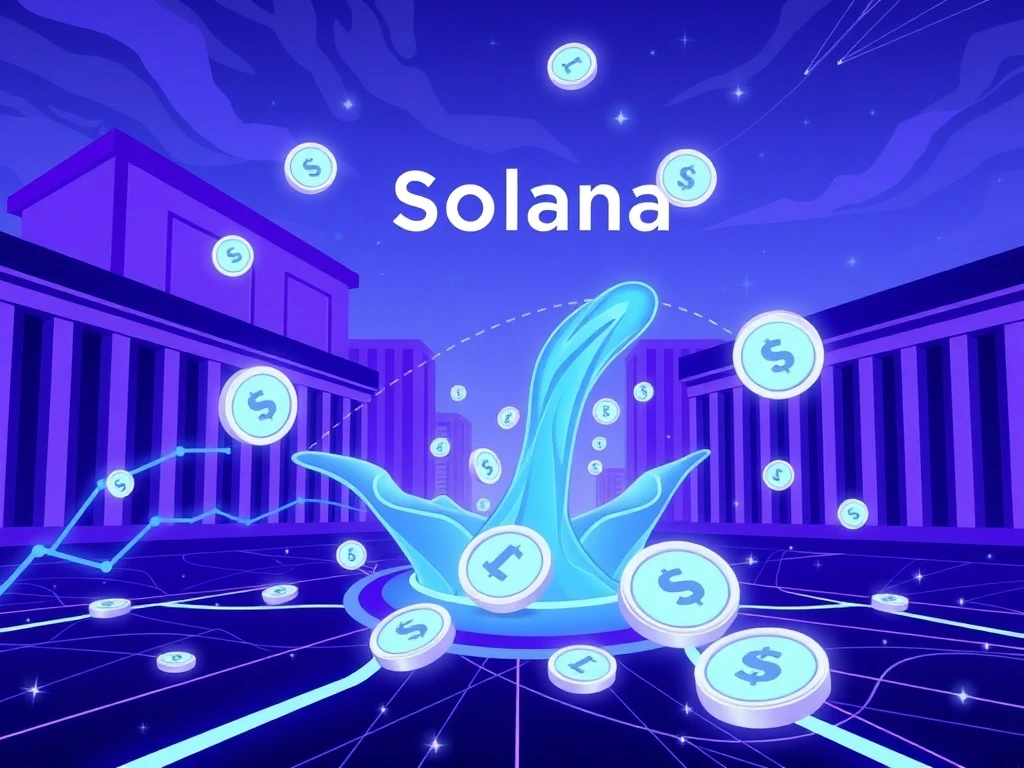The cryptocurrency landscape just witnessed a groundbreaking development as LsSOL launches, fundamentally changing how institutions and retail investors approach Solana staking. This innovative liquid staking solution bridges traditional finance with decentralized protocols, offering unprecedented capital efficiency while maintaining security standards that institutional players demand.
What Makes LsSOL a Game-Changer for Solana
LsSOL represents a monumental leap in liquid staking technology. This token allows Solana holders to earn staking rewards while retaining full liquidity for other investment strategies. Consequently, users can participate in yield stacking, leveraged trading, and various DeFi activities simultaneously. The protocol effectively solves the liquidity versus rewards dilemma that has long challenged crypto investors.
Institutional Adoption Driving LsSOL Growth
Major financial institutions have embraced LsSOL through strategic partnerships. ParaFi Technologies joined as a node operator, enabling corporate treasuries to access liquid staking infrastructure directly. Similarly, Fireblocks integrated LsETH for its 2,000+ institutional clients in June 2025. Furthermore, Galaxy Digital provides over-the-counter support and node operation capabilities. These collaborations demonstrate growing institutional confidence in liquid staking solutions.
Market Impact and Financial Implications
The liquid staking finance sector has exploded to $67 billion in total value locked, making it DeFi’s largest category. Institutional crypto inflows exceeded $10.9 billion recently, driven partly by anticipated U.S. spot Ethereum ETF approvals. Solana’s price reached $209.20, reflecting positive momentum for blockchain applications. LsSOL capitalizes on this growth by enhancing capital efficiency across DeFi and cross-chain activities.
Risk Management and Security Features
Liquid Collective implemented robust security measures for LsSOL. The protocol includes slashing coverage programs and validator performance monitoring tools. These features address critical concerns about validator performance and compliance risks. Institutional investors particularly value these security enhancements, as they ensure higher degrees of protection and transparency.
Future Outlook for LsSOL and Solana Ecosystem
LsSOL’s success depends on continued adoption across both retail and institutional markets. The protocol must maintain high operational standards while expanding its feature set. Solana’s ecosystem growth supports LsSOL adoption, with increasing DeFi protocol usage and cross-chain activity. Market analysts expect liquid staking to become increasingly central to digital asset strategies.
Frequently Asked Questions
What is LsSOL?
LsSOL is a liquid staking token representing staked SOL with associated rewards, enabling users to maintain liquidity while earning staking income.
How does LsSOL differ from traditional staking?
Unlike traditional staking that locks assets, LsSOL provides liquidity tokens that can be used across DeFi protocols simultaneously.
Which institutions support LsSOL?
ParaFi Technologies, Fireblocks, and Galaxy Digital have partnered to provide institutional infrastructure and support for LsSOL.
What security measures protect LsSOL users?
The protocol implements slashing coverage programs and validator performance monitoring to ensure security and transparency.
Can LsSOL be used in DeFi protocols?
Yes, LsSOL tokens can be utilized across various decentralized finance applications for yield stacking and other strategies.
What is the current TVL in liquid staking?
The liquid staking finance sector has surpassed $67 billion in total value locked, making it the largest DeFi category.








